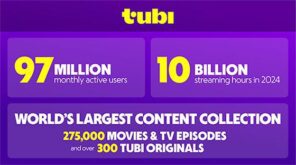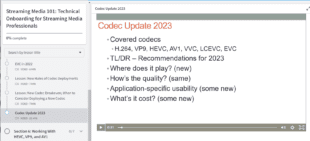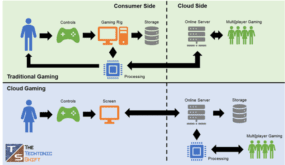This is a story I’ve been following for awhile. By way of background, MPEG-LA represents the H.264 patent holders and is charged with administering all licenses and collecting all royalties, which are paid by companies who build H.264 encoders, players and, in some instances, content. In the past, MPEG-LA hasn’t charged royalties for content delivered free over the internet, though royalties were charged for web-based subscription and pay per view content encoded with H.264.
In February, MPEG-LA announced that the patent group had extended the royalty free policy for free internet content through December 2015. Today, they announced that they were extending this policy in perpetuity.
Of course, between then and now, Google open sourced the VP8 codec, creating a robust alternative to H.264. So what’s the practical impact of MPEG-LA’s decision? Unfortunately, probably not that much. Here’s why.
It’s all about HTML5, the standard that obviates the need for plug-ins like Flash and Silverlight. For H.264 to become the HTML5 standard, it has to be supported by all browsers, which would cost both Mozilla and Opera $5 million a year, which is the maximum yearly royalty obligation under the MPEG-LA license. Microsoft and Apple already pay the maximum for decode licenses relating to the Silverlight plug-in and Safari/iDevices, so H.264 support in their respective browsers costs them nothing extra. Google has more money than the Obama administration, so their decision to include H.264 support in Chrome isn’t surprising, though after spending over $100 million for VP8 and getting it to market, they may rethink their decision to license H.264.
Mozilla, at least, has the cash to pay the $5 million, but their organizational charter only allows them to incorporate open source technologies. A quick look at Opera’s financial statements tend to indicate that they couldn’t pay, but as much as I like their browser, they’re less then 2% of the market.
Interestingly, if Mozilla licensed H.264, it would allow HTML5 producers to standardize on the H.264 codec, which would do more to promote HTML5 than any other potential single action by any single company I could think of. According to a recent survey that I produced for streamingmedia.com, 54% of respondents who were considering HTML5 support rated the lack of single codec either a serious concern, or a very serious concern. Lack of HTML5 browser penetration was rated even more of a concern, but that will resolve in time. The codec issue appears to be a permanent problem which will force producers to encode in as many as four or five different formats in the short term, and at least two in the long term.
So, while I think MPEG-LA’s decision is a good move, unless and until Mozilla adopts H.264, it’s not going to break the HTML5 logjam. VP8 will also become popular with producers delivering pay per view or subscription based content to desktop computers, though obviously these producers will need to license H264 to access the iDevice market.
 Streaming Learning Center Where Streaming Professionals Learn to Excel
Streaming Learning Center Where Streaming Professionals Learn to Excel







